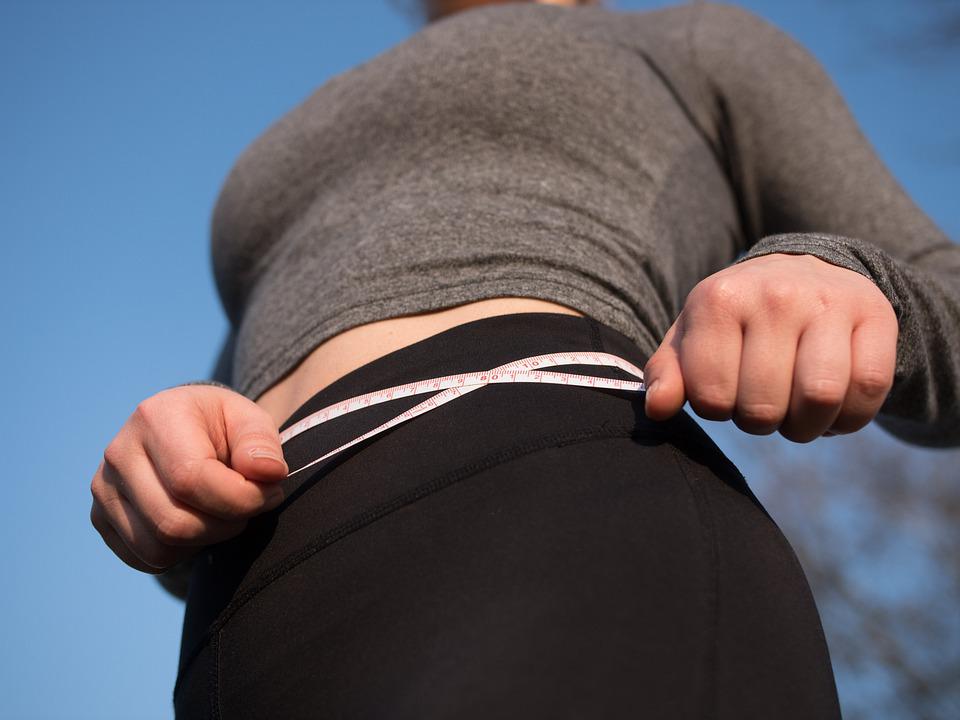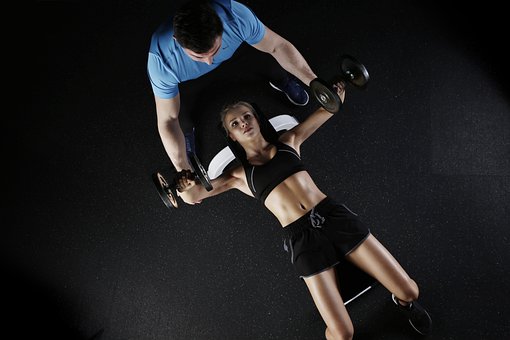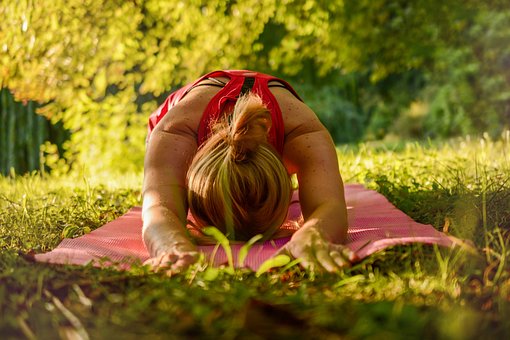
To improve your workout results, it is most important to know when and how to fuel your body, according to nutrition experts. They have created a list of rules to follow.
Plan Ahead
Dempsey Marks, a fitness expert, yoga instructor, and co-creator of PreGame Fit, prefers morning workouts for various reasons. “Starting your day with any type of exercise gets your metabolism going,” she explains. “You burn calories all day long, which maximizes the benefits of your workout. Just 15 minutes of morning exercise will make a difference!”
Although morning workouts are optimal, consistency is key to reaping the benefits of exercise.
It doesn’t matter when you work out, as long as you are keeping your commitment and being consistent. Write it down, schedule it in, set alarms, whatever you need to do to make sure you get it done.
Do Some Dynamic Stretching
Ilana Kugel, co-founder and creative director of Koral Activewear, explains that stretching before working out will warm up the muscles and protect you from becoming sore afterward. Skipping this step could be what makes or breaks your entire exercise routine.
Kugel states that it is very important to do a dynamic stretch before working out, especially as we age, because if we don’t it can lead to stiffness and soreness. He suggests taking the necessary steps to protect oneself in order to have the safest and most enjoyable workout possible.
Use a Foam Roller
More and more celebrities and trainers are raving about foam rollers as a great way to stay fit. Not only can they help relieve stress, but they’re also great for circulation, stimulating the lymphatic system to help get rid of toxins, and making muscles look and feel suppler and more youthful.
Lauren Roxburgh, who specializes in Structural Integration, suggests using a foam roller before working out for best results. “I always get asked when is the best time to roll. It’s actually best to do before a workout so you can awaken and prepare your body for movement,” she explains.
Eat and Drink Wisely
Some people think it is better to eat and drink before working out, while others think it is better not to. However, recent studies have found that if you do eat and drink before working out, you can get better results if you are careful about what you eat and drink. For example, you should drink water when you are thirsty to stay hydrated. Also, Katie Mack, an NSCA-certified personal trainer, says that you might want to drink a cup of coffee before working out. The caffeine in the coffee will help you perform better.
According to a scientific study, the best thing to eat before a workout is a meal with carbohydrates and lean proteins. Mack recommends eating a low-fat meal one hour before working out. Some of her favorite options are chicken, fish, or Greek yogurt, with a carbohydrate like sweet potato, rice, or beans. The study showed that “carb-loading” right before exercise can significantly increase performance. Mack suggests adding coconut oil for a dose of MCTs (medium-chain triglycerides) for quick energy if you’re really invested.
Try a Supplement
Supplements that contain caffeine have been shown to be effective in boosting energy before exercise.
Taking supplements can help with fatigue and focus during a workout, but they won’t have a big effect on body composition. If you’re struggling partway through a workout, a supplement can help your mindset, but don’t expect miracles. Check with a doctor before taking any supplements.
Get Enough Sleep
“Sleep is one of the strongest determining factors for a successful health routine,” says Monica Jones, NASM-certified personal trainer, and performance enhancement specialist. “At our core, sleep affects the release and balance of neurotransmitters like dopamine and serotonin (often referred to as the ‘happy hormones’). While these processes are handled at the cellular level, brain and bodily function strongly affect our ability to perform physical activity.”
Sleep is the key to a good workout because it affects your mood and energy levels. Without enough sleep, you are more likely to get injured and your performance will suffer.
Run Hungry
The best way to lower your body-fat percentage, according to holistic health coach Seth Santoro, is to work out soon after waking up. “Hit the gym and do some treadmill sprints on an empty stomach to burn fat,” he says. Glycogen levels are depleted during sleep, so your body will utilize body fat as an energy source.
Fuel Your Muscles to Give Them a Lift
“If you want your workout to be effective, you should eat around 30 grams of carbohydrates before starting. Without the extra energy from carbs, you’ll get tired quickly and won’t be able to finish your workout,” says Leah Kaufman, MS, RD, CDN.
According to Kaufman, if you are looking for a workout that will require a lot of energy, you should consider eating whole-grain pancakes three to four hours before your workout. Additionally, half an hour before your workout, you should consider eating bananas, a fruit smoothie, or oats. Santoro then recommends protein for pre-workout fueling, as it is easily absorbed into your body.
Stay Away from Sports Drinks
After reading the text, it is evident that Kaufman is cautioning people against consuming sugary drinks like Gatorade and Vitaminwater after short workouts. She believes that many people feel they need these drinks when they really don’t, and suggests drinking water instead.
Remember to Refuel
It is crucial to have post-workout nutrition to maintain fitness goals, according to Santoro. He states that pre and post-workout nutrition are the two most important meals of your day. Refueling your body immediately after a workout is important because it helps to replenish glycogen levels, decrease protein breakdown, and increase protein synthesis and the ability to build muscle. Kaufman recommends following resistance-training exercise with an egg-white omelet or Greek yogurt and says that you should consume at least 10 to 20 grams of protein after a weight-training regimen.
Don’t Out-eat What You Burned
70 to 75 percent of the calories we expend each day is needed for “basal metabolic functions.” This includes keeping your heart beating and making your fingernails grow. If weexert a lot of extra energy, our bodies call for more fuel which we experience as hunger. When this happens, people tend to eat more than they need. Lisa Jubilee, MS, CDN says that when you feel exercise-induced hunger, you should only eat 20 to 30 percent more than what your calorie tracker says you burned. She reminds us that we burn calories just by sitting around and that a lot of the calories we consume while working out are burned anyway.
Now that you know how to increase your workout results by three times, read on to find out the mistakes you need to break during your next gym visit.
You Don’t Fuel Your Workout Properly
It is not a good idea to work out soon after eating fatty foods like nuts and avocados because it can result in diminished exercise performance and workout-ending muscle cramps. Another pre-workout dietary no-no is not eating enough carbs. Taking in too little of the nutrient makes it near impossible to make it through a long, intense, calorie-blasting workout.
Your Cardio Plan is Out of Whack
Yes, cardio has many benefits, like boosting heart health, burning calories, and helping some people relax. However, not all cardio workouts are the same. If you stay on the treadmill or bike for too long, you can actually damage lean muscle mass, which makes it harder to lose weight in the long run. Endurance training also makes your body more likely to store food as fat, instead of using it for energy. Researchers say that people who mix cardio with high-intensity, total-body resistance training programs lose more fat than people who do moderate-intensity cardio workouts. A better option might be to do a shorter cardio workout (30 to 45 minutes) and add in some 60-second sprint intervals every few minutes to increase the intensity.
You’re Recovering the Wrong Way
Rest and recovery are just as important as working out. If you don’t take enough time to relax between sessions, your body will start producing cortisol, which is a stress hormone that causes weight gain and increased appetite. You don’t have to take two days off for every day you work out, but you should vary your workouts so you’re not working the same muscles every day. This means that you can’t do two full-body strength-training sessions in a row, but you can do upper body one day and lower body the next, or alternate between light workouts like yoga or spin class with full-body resistance training. This will help your muscles recover without taking away from your workout schedule.
You Aren’t Sweating Enough
If you want to see a change in your body, you need to challenge your muscles by lifting heavy weights. This will help you to sustain long-term muscle growth, increase your metabolism and stay lean. If you find that you can do more than 10 repetitions easily, then the weight you are using is probably not heavy enough. Try varying your repetitions and increasing the amount of weight you lift bit by bit.
You Never Mix Things Up
Doing the same workout for months on end and expecting to lose weight is a lot like using a cheesy pickup line to land a date—it’s just not going to work. Sure, that barre class may have helped you lose the first five pounds, but after you’ve mastered the moves, your progress is sure to stall. If you want the scale to tip in your favor, you have to vary your workouts and do exercises that you’re not particularly good at so your body stays challenged. To keep seeing results, mix up your intensity or duration every time you hit the gym, then completely switch your workout once a month. That could mean trying a boxing class if you’ve become a hardcore yogini or simply drawing up new resistance and cardio routines every four weeks. In order to keep losing weight, you need to keep changing up your workouts. This means varying the intensity, duration, and type of exercise you do. Once you get good at one type of exercise, your body stops seeing results. To avoid this, switch your routine every month.
You Refuel With Too Much Protein
The recommended amount of protein for someone who weighs 150 pounds is 20 grams, while someone who weighs less may only need 12 grams. Any more protein than the recommended amount is likely to be stored as fat. Lisa De Fazio, MS, RD notes that the excess amino acids will simply be excreted. A 7-ounce Fage Total 2% Plain Yogurt is an easy way to get the recommended amount of protein. Mixing it with some berries provides additional benefits.














